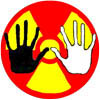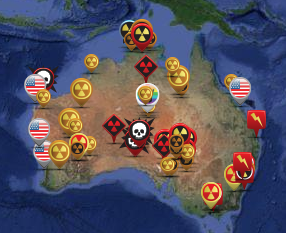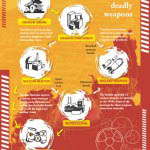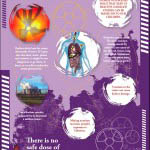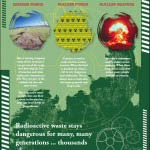The 2011 meeting of the Australian Nuclear Free Alliance was held on the weekend September 9-11 on the land of the Undoolya people in Alice Springs. The meeting coincided with events worldwide marking six months since the Fukushima nuclear disaster began in Japan. The meeting was also at the same time as the 10 week Walk Away From Uranium Mining in Western Australia.
ANFA 2011 was attended by representatives of the following Aboriginal and Indigenous Nations and organisations:
Arabunna, Arrernte (central and eastern), Kadyede, Kokatha/Anterkirinya, Kokatha/Mirning, Kokatha/Narrangar, Larrakia, Mirarr, Navajo, Wajarri Yamatji, Warumungu, Warlmanpa, Warlpiri, Whagjuk/Yuet, Wilman/Bibulman.
Arid Lands Environment Centre, Australian Conservation Foundation, Beyond Nuclear Initiative, Choose Nuclear Free, Conservation Council WA, Environment Centre NT, Environmental Defenders Office (NT), French Network for a Nuclear Phase out, Friends of the Earth (Adelaide, Melbourne, Sydney, Brisbane), Gundjeihmi Aboriginal Corporation, Medical Association for Prevention of War, Mundatharra Aboriginal Corporation, National Tertiary Education Union (NSW), Public Health Association of Australia, Western Australian Nuclear Free Alliance.
The meeting opened with a statement from Mirarr Senior Traditional Owner Yvonne Margurula who has expressed great sadness that uranium mined from her country in Kakadu National Park is fuelling the radiation problems at Fukushima. A message of solidarity was also sent from Djok Senior Traditional Owner Jeffery Lee, who is fighting to see his country at Koongarra incorporated into Kakadu National Park to protect it forever from uranium mining.
The meeting resolved the following statements:
Exploration/Land Tenure
It is important to expose the fact that Aboriginal people have very limited rights to say no to uranium mining: Land Rights give you some rights; Native Title gives you no rights.
Following a legal briefing the meeting agreed to:
– work with groups that campaign and advocate on this issue and inform Land Councils and representative bodies of this concern
– challenge and push Land Councils and representative bodies to represent their constituents and ensure the counter-industry view is provided
– remind Land Councils and representative bodies that they are legally required to represent Traditional Owners and not mining companies and they need to start doing this or face legal action.
Health
Despite nuclear industry assurances, we know that there is no safe dose of radiation. Many people at ANFA have personal or family experiences of these health effects including from the atomic tests. There has never been compensation for atomic testing, which impacted Aboriginal people so greatly. The industry claims that low levels of exposure to radiation are safe, that we need a nuclear industry to treat people with cancer, or that previous nuclear accidents like the recent Fukushima explosion are not too bad, but these claims are all false. The meeting affirmed its commitment to challenging the false claims of the nuclear industry and to building and strengthening alliance with Aboriginal and mainstream health groups.
International
Australia’s involvement in the nuclear trade has global implications. The meeting was joined by anti-nuclear activists from the Navajo Nation and France. The group discussed how all uranium exported from Australia ends up as nuclear weapons or nuclear waste and causes problems for people in many different countries. ANFA affirmed a commitment to working with fellow activists across all nations for a nuclear free future.
Climate Change
The meeting agreed that nuclear power is no solution to climate change and that Australia’s energy future must be renewable not radioactive. The meeting resolved to work with climate change activists to debunk claims that nuclear power has a role to play in reducing greenhouse emissions.
Fukushima
The meeting heard a first hand report on the Fukushima Daiichi nuclear disaster and the spread of radioactive contamination in Japan. Supported by anti-nuclear groups, people in Japan are fighting the lax radiation protection standards set by the government. The ongoing Fukushima disaster makes it imperative that Australia acknowledges the costs and consequences of exporting uranium. This is particularly important given that uranium from Ranger and Olympic Dam is sold to Japanese utilities.
Radioactive Waste
The meeting heard from Muckaty Traditional Owners and representatives from other NT communities targeted for a national radioactive waste dump. The current plan offers Traditional Owners at Muckaty compensation to host the dump in the form of roads, housing and education scholarships. These are basic human rights and essential services and should be provided by government anyway – citizenship entitlements should not be dependent on communities accepting a radioactive waste dump. The meeting resolved to support any Traditional Owners facing this toxic bargain, urged people to resist waste transport through their land and called for responsible radioactive waste management by leaving it close to the site of production, scientific expertise and scrutiny.
Walk Away from Uranium Mining
The meeting acknowledged and supported the efforts of those currently involved in the Walk Away from Uranium Mining – a walk from Wiluna to Perth to highlight the cultural and environmental impacts of uranium mining. Some international members of the Walk attended the ANFA meeting to share their stories.
Trade Unions
The meeting shared stories of working with trade unions. Unions have a long and successful history of campaigning on behalf of their members and of supporting communities including the campaign against the Lucas Heights nuclear reactor. The meeting heard that there are many simple ways to work with unions to make campaigns stronger. Union liaison and cooperation on the NT waste dump campaign is set to grow in the coming period.
Moratorium
The meeting called for a moratorium on all uranium mining and dumping of nuclear waste in Australia, pending a public inquiry into the impacts of uranium exports overseas and implications of Australian uranium used in Japan by TEPCO at the Fukushima reactor.
